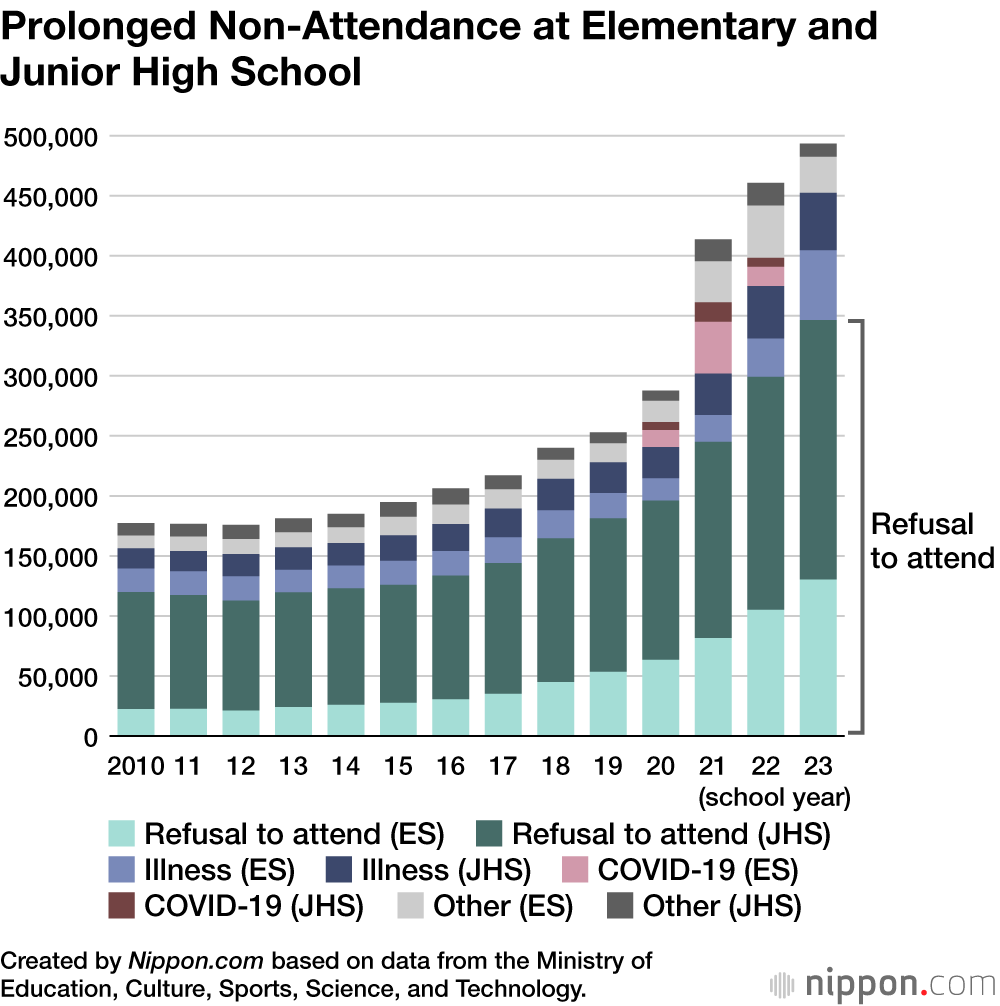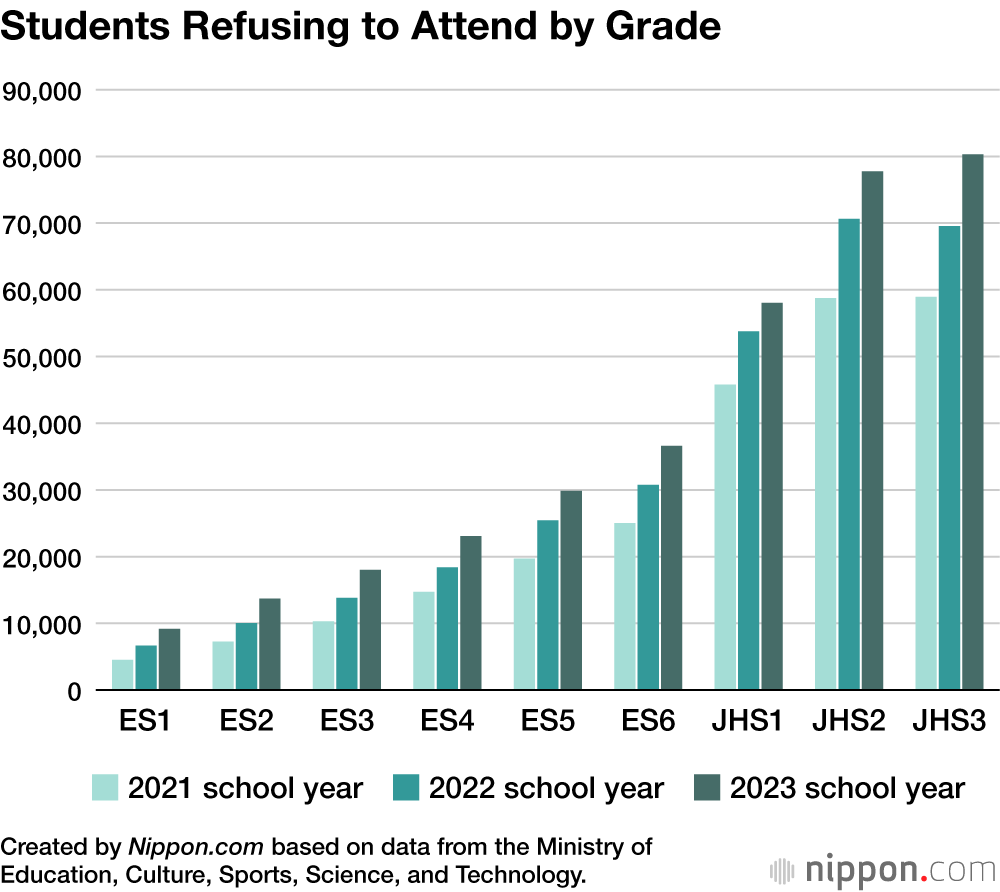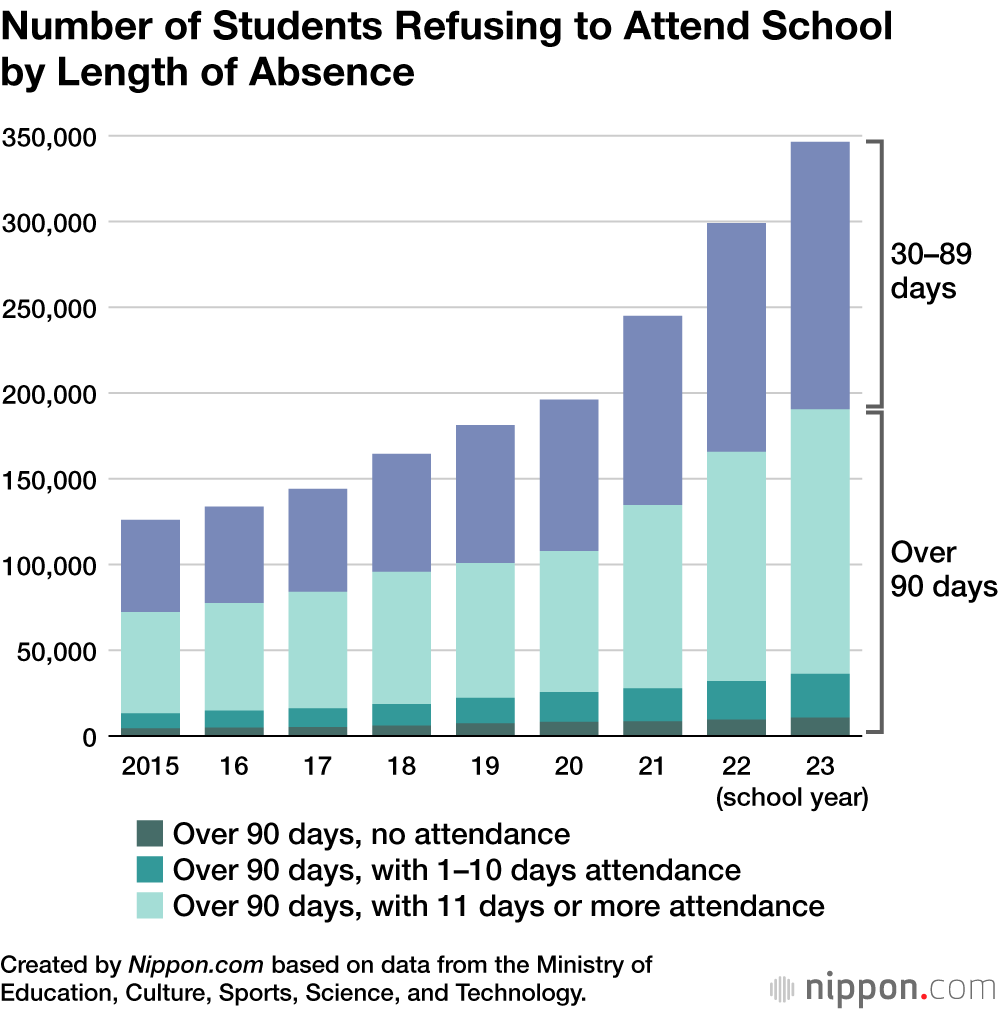
Absenteeism Continues to Increase at Japanese Schools
Education Society- English
- 日本語
- 简体字
- 繁體字
- Français
- Español
- العربية
- Русский
According to a survey on problematic behavior and non-attendance of school children by the Ministry of Education, Culture, Sports, Science, and Technology, during the 2023 academic year, a record number 346,482 students refused to attend school for 30 days or more. This was an increase of 47,434, or 15.7%, from the previous year and marked the eleventh consecutive annual rise. Compared to a decade earlier, non-attendance has risen 5.4-fold for elementary school students and 2.3-fold for junior high school students.
Looking at non-attendance by education level, there were 130,370 elementary school students (up 24.0% from the previous year) and 216,112 junior high school students (up 11.4%). This accounts for 3.7% of all students. The most common cause established by schools to indicate reasons for non-attendance was “consultation over lack of motivation,” at 32.2%, followed by “consultation over anxiety or depression” (23.1%), “consultation over breakdown in routines” (23.0%), “poor academic performance and regular failure to submit homework” (15.2%), and “friendship issues other than bullying” (13.3%).
The disruption to routines during the COVID-19 pandemic is thought to have lowered the barrier to non-attendance, while parents and guardians have also become more open to it as a necessary form of recuperation.
Overall, including both elementary and junior high levels, the ratio of children refusing to attend was 37.2 per 1,000 students. There were 190,392 students who were absent for over 90 days, which at 55.0% accounted for more than half of those refusing to attend school.
(Translated from Japanese. Banner photo © Pixta.)



